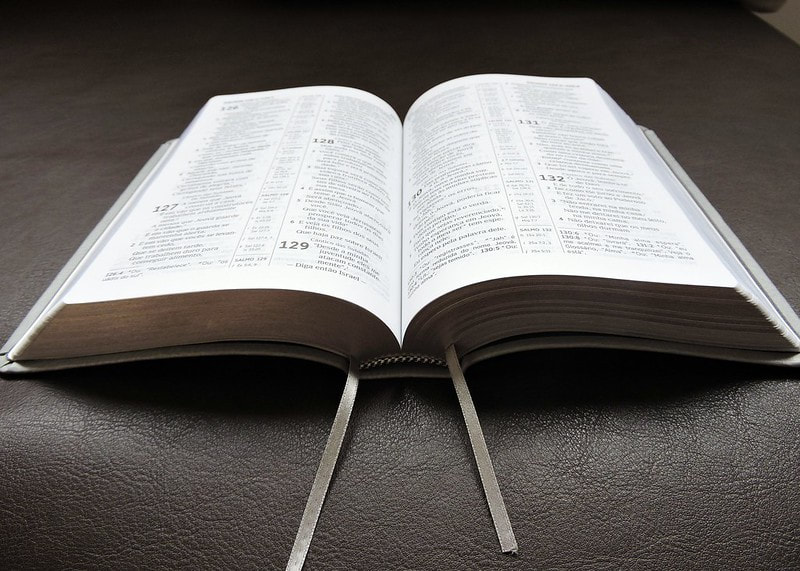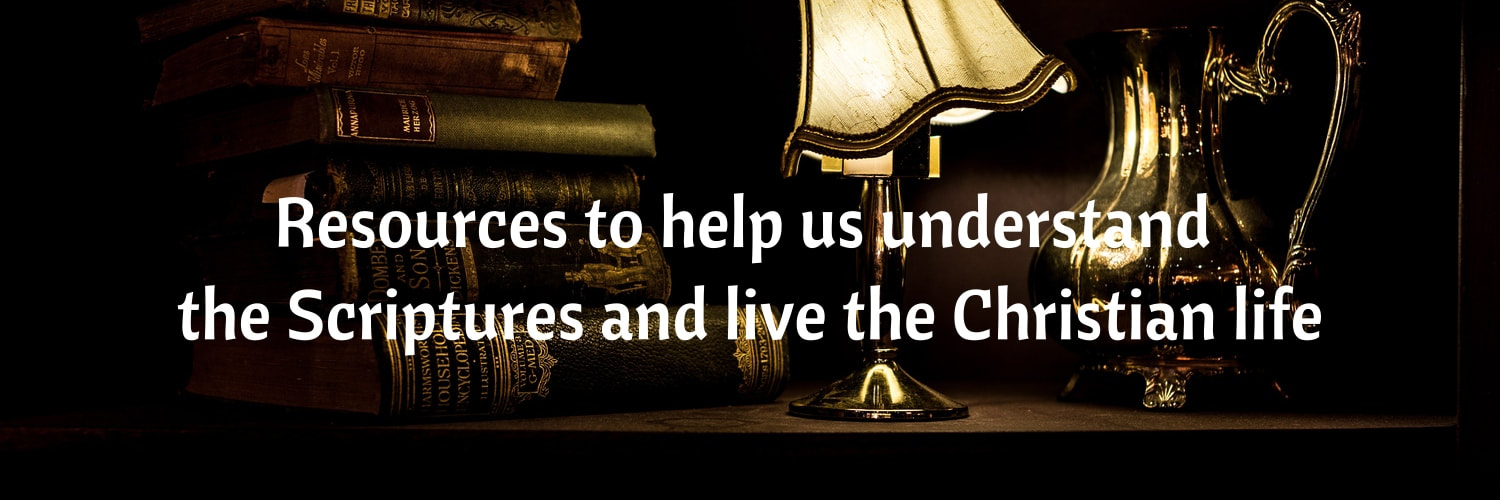|
Bunyan was poorly educated maybe about the equivalent of what we consider 6th grade today. He grew up poor, spent time in the military and became a tinker like his dad. This meant carrying a 60lb. portable anvil from farm to farm to fix pots and pans. This fairly poor man who had no formal training wrote about 60 books. Spurgeon said those who know the difference between law and gospel are a master theologian. Bunyan was this. Bunyan’s book on The Doctrine of Law and Grace Unfolded is an excellent work on this crucial distinction. He was accused of being antinomian, though it is clear he was not. He said a holy life is the beauty of Christianity. The book sets forth his view of covenant theology. For those who think covenant theology is the boogeyman, this might be a good place to start. Bunyan also suffered much as many did in those days. He spent more time in jail than other Puritans in the Great Ejection, being the first in and the last out and had two different times in jail. If he would have promised to stop preaching they would have let him out. Many would have given in. His 3-month sentence turned into 12 years for having illegal meetings (church services) and for not going to the legal services. He lost children and a wife. His perseverance is commendable. His experience of coming to Christ was somewhat similar to Martin Luther’s. When he realized that his righteousness is in heaven and not something he did, it was transformative. He saw Christ as a whole Christ their being nothing but Christ and his benefits on his mind. Luther’s commentary on Galatians was an important book for Bunyan. Pilgrim’s Progress is in over 200 languages and there are many versions of it. It is one of the best selling books ever. John Owen said he would trade his great learning to speak as clearly as Bunyan. Bunyan was a good storyteller and could speak the language of the common man. Spurgeon said he read Pilgrim’s Progress over 100 times. Bunyan shows us that educated or not we can understand the Scriptures. Bunyan was quite a sinner and shows us that God’s grace can abound even to the chief of sinners. His preaching attacked self-righteousness, but he was not a fire and brimstone preacher. He focused on sin and Christ as the Savior of sinners. Resources on Bunyan Basic Outline of his life Acacia John Bunyan - Online Library - A Timeline Chronicling the Life of John Bunyan (pair.com) John Bunyan’s Faithful Perseverance | Shepherds' Conference | Grace Community Church (gracechurch.org) Joel Beeke Joel Beeke excerpts from Meet the Puritans John Bunyan (1628-1688) by Dr. Joel Beeke and Randall J. Pederson (monergism.com) Christian Loses His Burden by R.C. Sproul (ligonier.org) Steve Lawson Session 5: John Bunyan | Grace Equip | Grace Community Church (gracechurch.org) Derek Thomas audio John Bunyan Conference Series | SermonAudio John Bunyan: The Faithful Tinker - Reformation 21 – Joel Beeke blog Lessons from John Bunyan's Life: Perseverance through Suffering - Dr. Joel Beeke Sermon - YouTube “William Kiffen, John Bunyan, and the open communion controversy” - Bing video – Mark Dever Reformed forum podcast theology Simply Profound goes through Pilgrim Progress Theology Simply Profound – Page 3 – Reformed Forum Derek Thomas guided tour from Ligonier on Pilgrim’s Progress The Pilgrim's Progress: A Guided Tour by Derek Thomas | Ligonier Ministries For Kids Simonetta Carr biography John Bunyan (Christian Biographies for Young Readers): Simonetta Carr: 9781601787798: Amazon.com: Books Torch lighters video The Torchlighters Series: The John Bunyan Story, DVD - Christianbook.com Pilgrim progress movie – several different ones here is the most recent trailer The Pilgrim's Progress | Official Trailer (2019) - YouTube Kids version of Pilgrims Progress book. There are different ones of these. Here is one. Dangerous Journey: The Story of... book by John Bunyan (thriftbooks.com) Books by Bunyan He wrote just shy of 60 books. Not bad for someone with about a 6th grade education. You can find a complete list of his books elsewhere. Here are a couple to get you started. Grace Abounding to the Chief of Sinners is his autobiography. A classic read or you can find audio to listen to it for free to. The Doctrine of Law and Grace Unfolded. Puritan Paper backs has a number of volumes of Bunyan’s in print. All Loves Excelling: John Bunyan: 9780851517391 - Christianbook.com Monergism has about 25 works of Bunyan downloadable for free 800+ Free eBooks Listed Alphabetically by Author | Monergism Jay Wipf is a former student of Coalt Robinson and attended Grace University where he earned his degree in Christian Education. Jay is currently studying at Reformed Baptist Seminary in the comfort of his home in Huron, SD. By grace and at Grace he met his beautiful wife Rachel, and they now have three young children. Jay and his family live in Huron where he works in facilities at a local credit union and serves within the local church.
Proper Use
The value of a confession has already touched on its proper use. It is used to promote and defend the truth of Scripture. More specifically in the local church it can be used to evaluate teachers and pastors as well as provide boundaries for ministry. Churches use, for example, the LBC of 1689 to teach systematic theology. It can be a quick reference guide to defend the faith. It can be used for new member’s classes, family devotions and more. Many churches do not require new members to affirm this. It would be too much for new believers to understand. They have a shorter statement for that, desiring them to know what they are signing. The church wants to keep out enemies, not the weak. They use the confession for elders and deacons and those involved in teaching in the church. This provides greater unity amongst those teaching, something for the immature to work toward, and a set standard to evaluate ministries, and ministers supported by the church. If you want to teach here, or get money from us, we need to know what you believe. There is freedom of use. The confession is not an end all. It does not solve all problems or mean the church can check out because it has a confession. It is meant to be an aid to the church and her members. This is to be a public confession as indicated in the Scriptures (Matt 10:32–33; Rom 10:9–10). Subscription Some have written as many as nine different levels of subscription. This seems much too complicated. Whatever the subscription level, unending exceptions makes it meaningless, but not allowing any exceptions is unreasonable. Discernment is required. An exemption on matters of orthodoxy, for example the Trinity, should not be allowed, but perhaps on the order of church government, an exemption might be permitted. The individual taking the exemption needs to be willing to submit to the church on that issue and not make issue about it or stir up descent or cause disunity. He may be asked not to teach about the topic. Some doctrines in the confession are essential for salvation and others are for the health of the church. They are not all of the same importance. Dangers There are objections or dangers to confessions. Three are common. 1) The main objection is that Confessions undermine the authority of Scripture. The LBC of 1689 explicitly and at the beginning denies this, giving an excellent statement as to the authority of Scripture. The problem here is the attitude given to the confession. The Roman Catholics give the claim of infallibility to several creeds and some orthodox may be guilty of some sort of hyper-confessionalism as well. This seems to be rather rare in church history and less of a problem with Protestants. This hyper-confessionalism actually goes against the confession! The Confession never trumps Scripture, it is normed by Scripture. Some think that if you quote the confession more than Scripture you are guilty of this as well. One wonders who is counting, but if every time a pastor is asked a question he quotes a confession and not Scripture there may be a problem in his own mind. 2) The sufficiency of Scripture is undermined. 2 Timothy 3:16, 17 say we have everything we need. Again the confession affirms the sufficiency of Scripture. Scripture is not sufficient for every task. If your pastor only read the Bible and never explained anything, you would complain he is not doing his job and you would be right. If you only allowed the pastor to preach using biblical words, his vocabulary would be very limited in trying to communicate. Explaining doctrine in extra biblical words does not deny the sufficiency of Scripture. 3) Confessions take away liberty of conscience. This goes back to the proper use of a confession. They are not meant to be strait jackets. Over one hundred ministers wrote the Westminster Confession of Faith. Rest assured they did not agree on every jot and tittle of doctrine and they made room for themselves within the confession. There is places where we can disagree with each other and both still be confessional and there are places where exemptions can be considered. A problem with the confession though may reveal a problem in one’s own heart or mind. Other potential problems with a confession are along the same lines. Like all things in life a confession can be misused. These potentials for misuse are not the fault of the confession, but of sinful and imperfect humans. These dangers do not out way the benefits nor does it negate the biblical evidence and necessity of having a confession. Conclusion A church in having a historic confession has a great commonality within the immediate body and with believers all over the world past and present. Confessions are a useful tool for the church in training up its members and defending the faith once for all handed down. Confessions are biblical and necessary. May our churches be full of and training up theological contenders who are passionate about what they confess. May the church have a tradition that is normed by Scripture. If confessions are so biblical and valuable, why have confessions gone away? A couple of ideas to mention would be:
1) With the rise of rationalism and skepticism the Bible itself has been down played. If the Bible isn’t the Word of God than I certainly don’t need a confession about it. Introduction
What is a confession of faith? Is it not the same as our church’s doctrinal statement? Why do we need one? Even if we have a confession, how do we use it and does it not present some dangers? These are somewhat common and good questions when some are learning of historical confessions of faith for the first time. A creed or a confession is a restatement of biblical truth. It explains what Scripture says. To confess means to agree with. A confession is as an agreed upon understanding of the Christian faith. Confessions seek to answer basic core doctrines. If we do not know who God is we are committing idolatry. A confession states clearly and concisely who God is. This paper will show primarily the biblical basis for a confession. An example of how a confession was used will show great value to having a historic confession of faith. Proper use, subscription, and dangers will be briefly addressed. The biggest ill use of Scripture (in my limited perspective) is by far and above legalism. This may well be the biggest danger to our churches. It is a failure to understand the right use of the law. The gospel is distorted and we often do not even notice! This happens when our sermons are all “do this” and there is no mention of what Christ has “done”. This happens when the gospel is relegated to the end of the sermon every week when every head is bowed and eye closed. This happens when we forget that we as believers need the gospel to. There is a misuse of the law and a mismanagement of the gospel!
There are some more ways we mishandle Scripture. Sometimes looking at the negative helps to make the positive more clear. These are generalizations as we are not taking time to look in depth at each of these categories.
Elevating one portion of Scripture above another mishandles Scripture. One example of this is those that teach repentance is not a necessary response to the gospel along with faith. They take the gospel according to John and say that since John wrote so that we may believe (20:31) and John does not use the Greek word for repentance, therefore repentance is not a necessary response to our sin. They elevate the gospel of John above the rest of Scripture. Other passages do speak about repentance and just because one particular word is missing does not mean the idea is not present. They do not handle well the Word of God. We live in a time of unparalleled resources and yet we seem to know less. Here are some places that may be helpful for you.
Scripture is a story. We are beginning to see the story. God created everything good. Adam and Eve then made a bad mistake. We call this the fall. They were kicked out of the Garden and life got much harder. The bulk of Scripture is then the story of redemption. How is God going to restore us to a right relationship with Him? When will the promise of Genesis 3:15 come true? Of course it comes true in the person of His Son Jesus Christ. He came to earth, rightly handled the Word of God, satisfied the just wrath of God, put an end to death and crushed the head of the Snake.
In Numbers 21 after the LORD gives them victory over their enemies the people of Israel become impatient and complain. We read:
5 The people spoke against God and Moses, "Why have you brought us up out of Egypt to die in the wilderness? For there is no food and no water, and we loathe this miserable food." 6 The LORD sent fiery serpents among the people and they bit the people, so that many people of Israel died. 7 So the people came to Moses and said, "We have sinned, because we have spoken against the LORD and you; intercede with the LORD, that He may remove the serpents from us." And Moses interceded for the people. 8 Then the LORD said to Moses, "Make a fiery serpent, and set it on a standard; and it shall come about, that everyone who is bitten, when he looks at it, he will live." 9 And Moses made a bronze serpent and set it on the standard; and it came about, that if a serpent bit any man, when he looked to the bronze serpent, he lived. (Num. 21:5-9 NAU). |
Authors and Categories
All
|
About Renewal CastWe believe that our minds are to be shaped and renewed by the life-giving and transforming Word of God through the power of the Holy Spirit - so we pray that as you listen you will see Jesus more clearly.
|
Useful Links |
Stay Connected!We are always working on something new and exciting, so make sure to be the first to know!
|
© Copyright 2023. All Rights Reserved.









